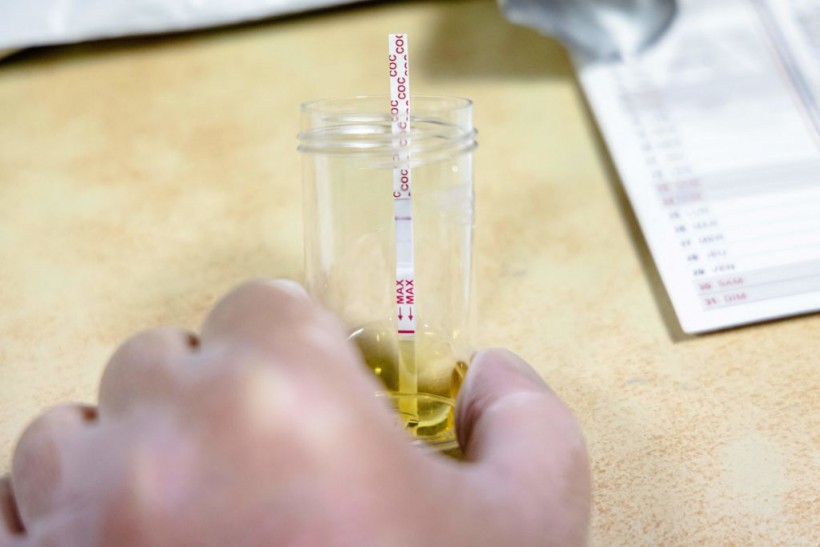The first urine test to identify a specific form of liver cancer may soon be possible thanks to the discovery of a metabolite by scientists that have never been seen in mammals before, according to a report by The Independent.
Liver cancer is frequently detected after the patient has already started undergoing therapy for other conditions, such as cirrhosis or fatty liver disease.

This photograph taken October 14, 2022, shows a drugs testing urine sample kit at Felix Eboue international airport in Cayenne, French Guiana. - French authorities have dubbed the overseas territory of French Guiana a "narco-department and major hub" in trafficking cocaine narcotics to mainland France, where it is estimated 20% of the cocaine consumed comes from French Guiana. At the heart of this trafficking lies the riverside town of Saint-Laurent du Maroni bordering Surinam and French Guiana. In this town where employment prospects are low, cocaine trafficking presents a lucrative allure to some of its 50,000 inhabitants.
However, early, non-invasive testing could speed up the discovery of novel medications, detect diseases earlier, and improve the efficacy of currently available therapies.
A trip to a hospital or doctor's office is typically necessary for the majority of patients to receive a diagnosis of cancer, which is currently made through blood testing, ultrasound scans, and more.
But after scientists at the Cancer Research UK Beatson Institute in Glasgow discovered a metabolite in mice, a novel urine test may be created to identify the beta-catenin mutant form of liver cancer.
Brand-new Metabolite
According to Saverio Tardito, the project's principal investigator, more people are likely to develop liver cancer, necessitating the development of novel diagnostic and therapeutic methods.
He said they were excited to find this brand-new metabolite that had never been seen in mammals. He claims that it is a good candidate for diagnostic testing because it is targeted to a particular type of liver cancer, is detectable by urine, and could monitor the presence of tumors.
A team looking at the protein glutamine synthetase, which is known to be prominent in liver cancer, found the possibility for the test.
The scientists created a novel metabolite that had never been detected in mammals when researching this enzyme in mice with normal liver tissue.
It was found in high concentrations in mice with a particular form of liver tumor, and the concentrations increased as the tumor expanded.
The N5-methylglutamine metabolite was found by the Glasgow team, and it also appeared in the urine when this tumor-promoting mutation of the beta-catenin gene was present, suggesting that it may be used to determine patients with this particular type of cancer.
Dr. Tardito noted that they are planning to perform additional studies to identify how early the chemical occurs in liver cancer and understand how early a urine test could effectively diagnose the disease.
Related Article: [VIRAL] Cancer Patient Says "There's No Better Way to Fight" Than Eating the New McDonald's Travis Scott Meal on His Birthday









